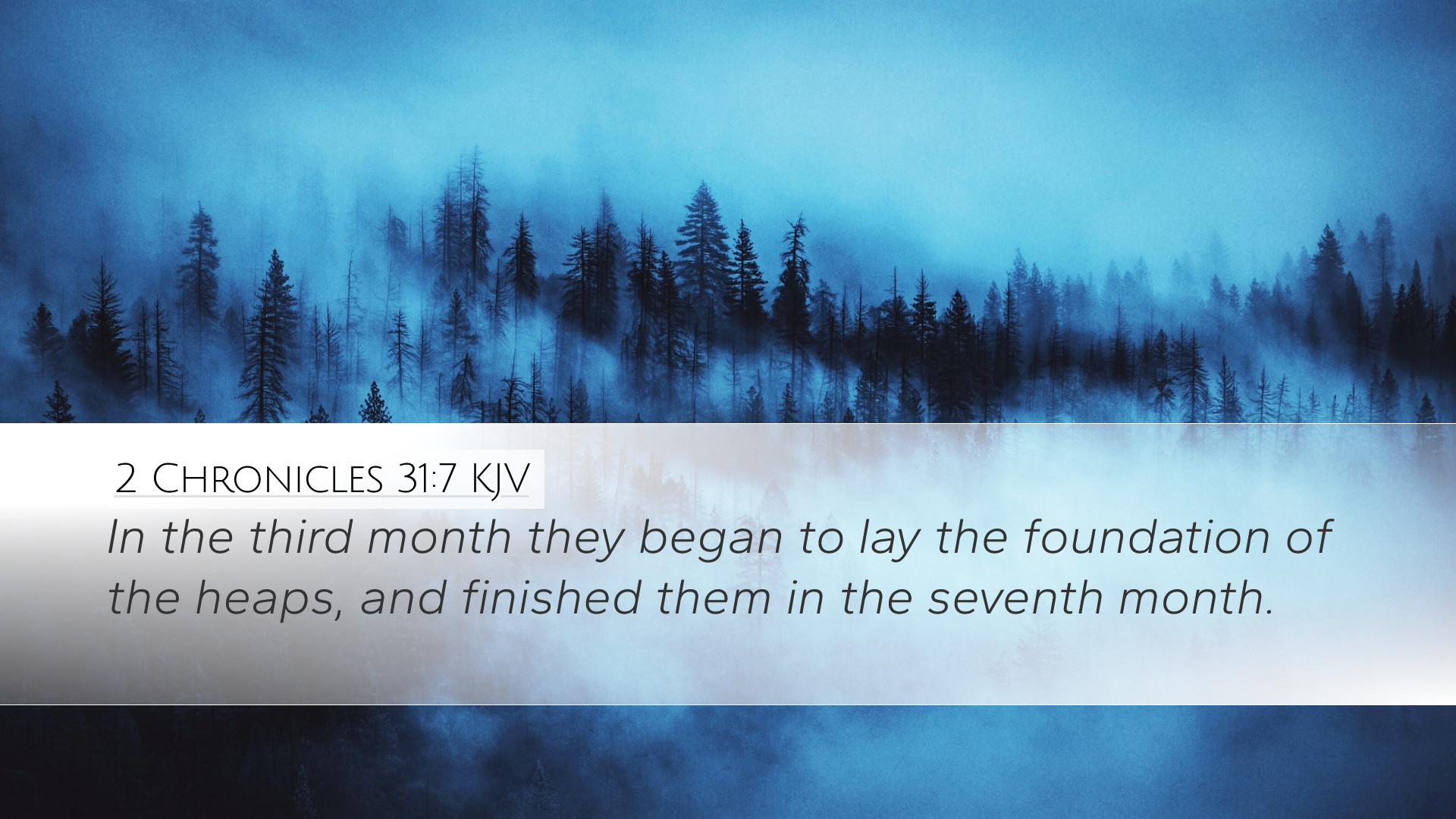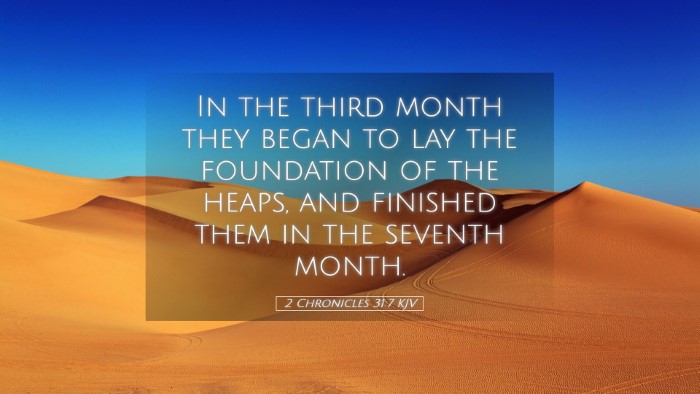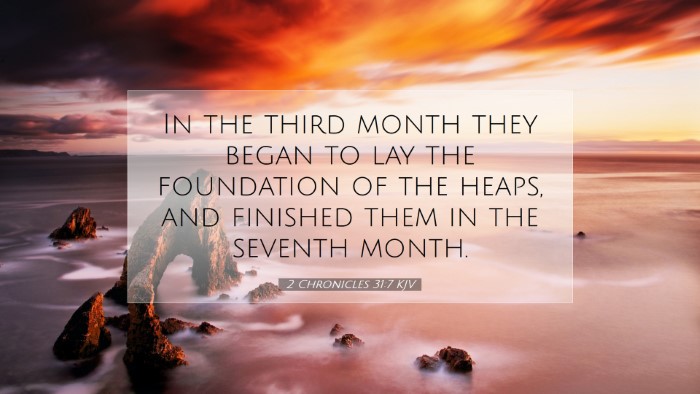Commentary on 2 Chronicles 31:7
In this passage, we find significant insights into the religious and communal practices of the people of Judah during the reign of King Hezekiah. This verse highlights the organization of the worship and service of God, which was a vital aspect of their national identity and spiritual life.
Context and Setting
This verse is situated within the broader narrative of Hezekiah's reforms, which aimed to restore proper worship and adherence to the Law of Moses. Understanding the context is crucial for grasping the depths of this account.
-
The Reign of Hezekiah:
Hezekiah became king of Judah at a time when idolatry had infiltrated the nation deeply. His primary goal was to lead his people back to the worship of Yahweh, and he took decisive steps to remove idols and restore temple worship (2 Chronicles 29-31).
-
The Role of the Priests and Levites:
In 2 Chronicles 31:7, the importance of the priests and Levites is emphasized as they were tasked with the responsibility of maintaining the spiritual purity of Israel. This reflects the organized structure that God had instituted for worship.
-
The Festival of Unleavened Bread:
This verse occurs in the context of the subsequent celebrations following the re-consecration of the temple and the observance of the Passover. The observance of these festivals was pivotal in reaffirming Israels covenant with God.
Verse Breakdown
In 2 Chronicles 31:7, we read how the offerings were organized and the significance behind these actions:
-
Timing of the Offerings:
During the second month of the year, the king organized the offerings, symbolic both of obedience and the renewal of their covenantal relationship with God.
-
Gathering of the People:
Hezekiah calls the Levites to establish a system where they encourage participation in the offerings, showing the inclusive nature of worship that sought to engage all the people of Judah.
Theological Significance
The events of this passage illustrate several key theological themes:
-
The Holiness of Worship:
True worship requires purification and dedication. Hezekiah’s reforms underscore the need for a heart that is aligned with God’s purposes.
-
Covenantal Reminders:
The observance of the prescribed offerings served as a tangible reminder of God’s covenant faithfulness and the obligation of the people to respond accordingly.
-
Community in Worship:
Worship in the Hebrew context is community-oriented. This verse reflects the unity of the people in corporate worship, which is an important aspect of the faith journey.
Insights from Commentaries
Various public domain commentaries offer rich insights and reflections on 2 Chronicles 31:7:
-
Matthew Henry:
Henry emphasizes the revival of true worship as a blessing from God. He notes that the organization brought about by Hezekiah indicates that God desires order in worship, which glorifies Him and benefits the worshippers.
-
Albert Barnes:
Barnes points out that the second month was significant as it allowed proper time for preparations. He draws connections between timely worship and a prepared heart, indicating that genuine worship must come from a place of readiness and intention.
-
Adam Clarke:
Clarke elaborates on how the people’s involvement brought about an atmosphere of joy and commitment to Yahweh. He invites readers to appreciate how God’s worship aligns not only with ritual but also with the spirit of community and dedication.
Applications for Today
In applying 2 Chronicles 31:7, leaders and believers can pull forth several lessons:
-
Importance of Structure in Worship:
Organizing worship is essential for focus and flow. Leaders should take heed of the structure to ensure worship is engaging and reflective of God’s character.
-
Community Engagement:
Engaging the church body in acts of worship fosters unity and shared purpose. Encouraging participation can deepen the faith experience for individuals and communities alike.
-
Preparatory Worship:
Just as Hezekiah prepared the temple and the people, modern worship must involve preparation of hearts and minds to encounter the Holy God. Church leaders should encourage readiness and expectancy in worship settings.
Conclusion
2 Chronicles 31:7 is a profound reminder of the importance of organizing the worship of the living God properly. It invites us to reflect on our own practices and encourages a return to genuine, heartfelt worship that honors our covenant with Him. In leading worship, whether in personal or community settings, let us be mindful of our collective role in glorifying God and fostering a spiritual atmosphere that resonates with the teachings of Scripture.


